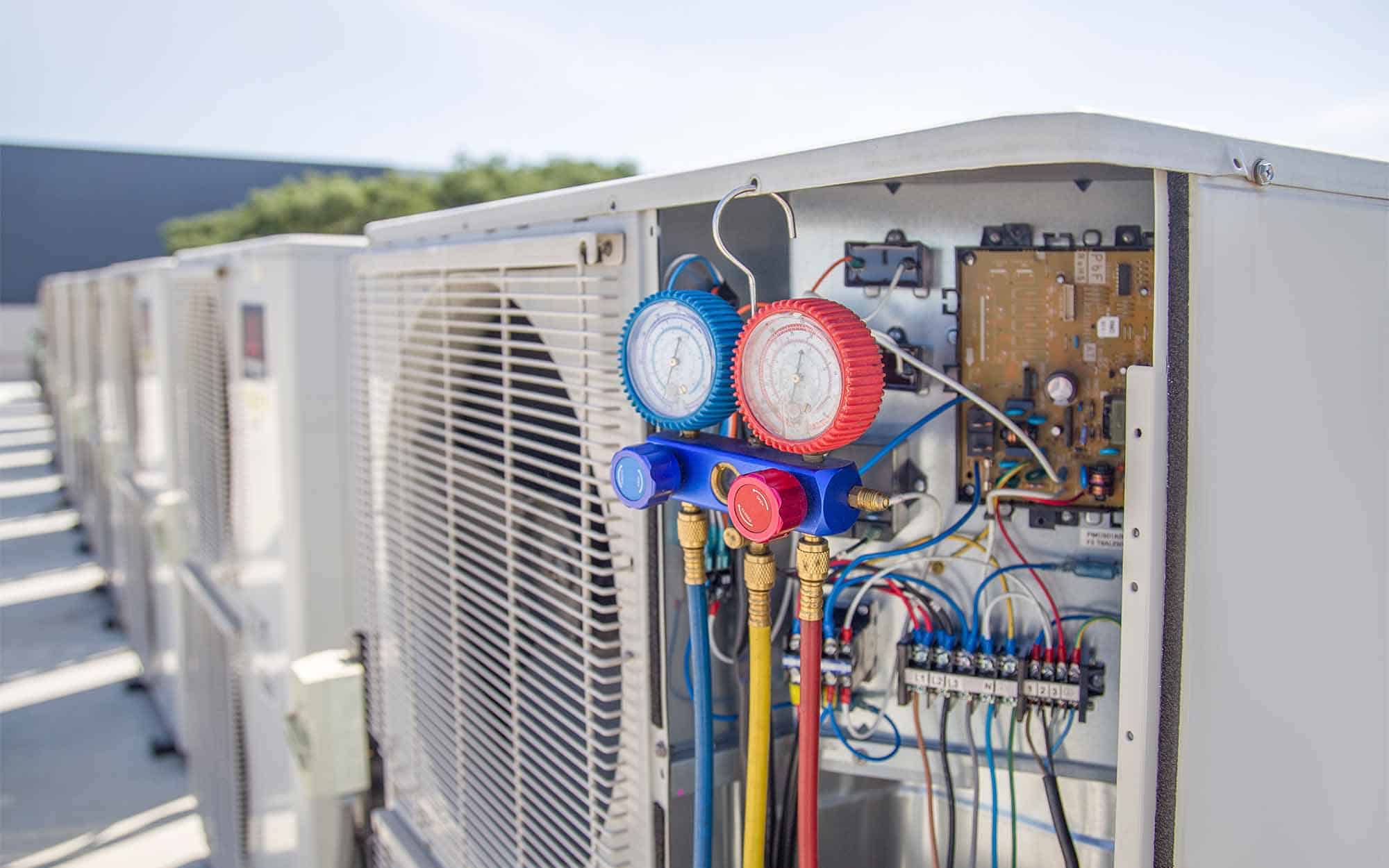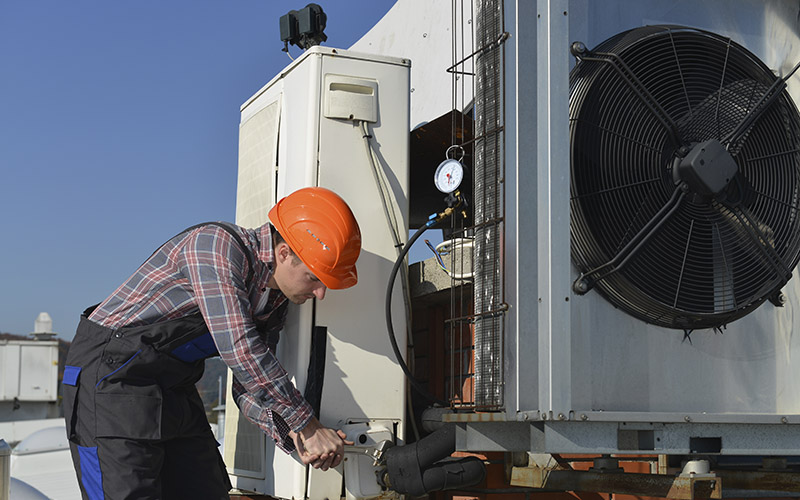How to Budget for Your Upcoming heat pump replacement ooltewah tn
How to Budget for Your Upcoming heat pump replacement ooltewah tn
Blog Article
Picking Between a Heatpump and Heater: Trick Factors To Consider for Your Cooling And Heating Demands
When reviewing home heating alternatives for cooling and heating requires, the decision between a heatpump and a heater can be intricate. Each system supplies unique advantages customized to certain climates and power effectiveness goals. Understanding these distinctions is important for making an informed selection. Secret aspects such as setup costs and ecological impact even more complicate the option procedure. Which option really aligns with one's convenience and sustainability preferences? The adhering to areas will certainly check out these factors to consider in information.
Understanding Warm Pumps: Exactly How They Function and Their Benefits
While several property owners consider different home heating options, recognizing how heatpump feature and their advantages can substantially influence their decision. Heatpump run by transferring warmth rather than producing it. In the winter months, they extract warm from the outdoors air or ground and move it indoors, while in the summer season, they reverse this procedure, cooling the home by getting rid of warmth outside. This dual performance makes them functional for year-round climate control.One of the main advantages of heatpump is their energy efficiency. They make use of substantially less electricity compared to standard home heating systems, possibly resulting in lower utility expenses (heat pump service). Furthermore, heatpump have a smaller carbon impact, making them an environmentally friendly choice. They also need less maintenance than conventional systems, contributing to long-term cost savings. In general, comprehending the auto mechanics and advantages of warm pumps can assist property owners make notified decisions regarding their heating and cooling down demands
Discovering Heaters: Kinds, Procedure, and Benefits
Heating systems come in various types, consisting of gas, electrical, and oil designs, each with distinct functional systems. Comprehending these distinctions is necessary, as they impact performance and heating performance. Additionally, furnaces supply many advantages, such as consistent warmth result and dependability in chillier climates.
Sorts of Furnaces
Heating unit can differ substantially in layout and operation, with heating systems being a popular selection amongst home owners. There are a number of kinds of heaters, each using various fuel resources and innovations. Gas furnaces prevail, leveraging gas to generate warm successfully. Electric heating systems, on the other hand, make use of electric resistance to produce warmth, usually favored for their uncomplicated setup. Oil heaters, while less typical, work in locations with limited gas accessibility (heat pump replacement ooltewah tn). Additionally, condensing heaters maximize energy effectiveness by recording and reusing exhaust gases. Each type runs via a system of heat exchangers and ductwork to disperse cozy air throughout a home. Understanding the differences in between these furnace types is crucial for informed a/c choices
Advantages of Furnaces
For house owners looking for dependable warmth during cold months, the benefits of furnaces are considerable. Heaters provide constant home heating, making certain even temperatures throughout the home. They are especially efficient in severe cool, often outshining heatpump in frigid conditions. Various kinds, consisting of gas, electrical, and oil heaters, supply flexibility to meet diverse needs and preferences.Furnaces also tend to have lower initial installation prices contrasted to warmth pumps, making them an extra obtainable alternative for many. Their robust layout adds to a much longer life expectancy, with lots of systems lasting over 15 years with appropriate maintenance. Furthermore, modern furnaces are often equipped with innovative modern technology for boosted effectiveness, which can cause lowered energy expenses. Generally, heating systems stay a reliable choice for reliable home heating.

Energy Performance: Comparing Warmth Pumps and Furnaces
When contrasting power effectiveness between heatpump and furnaces, the Seasonal Energy Effectiveness Proportion (SEER) plays an important function in establishing efficiency. Additionally, an operational expense evaluation discloses the long-term economic effects of each system. Understanding these factors can assist home owners in making informed decisions about their heating options.
Seasonal Power Performance Proportion
Power performance plays an essential function in the decision-making process between warm pumps and heating systems, especially when taking into consideration the Seasonal Power Performance Proportion (SEER) This statistics procedures the cooling efficiency of heatpump over an entire cooling season, providing a standardized way to assess performance. Greater SEER rankings show higher energy effectiveness, translating to reduced power usage and decreased utility bills. On the other hand, heaters are commonly analyzed making use of the Yearly Fuel Usage Efficiency (AFUE) ranking, which mirrors heating efficiency. When contrasting these two systems, home owners need to focus on SEER scores for heat pumps, as they straight effect general energy financial savings and environmental sustainability. A complete understanding of SEER can significantly influence the lasting fulfillment and cost-effectiveness of the selected HVAC remedy.
Operational Price Evaluation
Understanding the functional expenses related to heatpump and heaters is vital for homeowners assessing their choices. Heatpump generally supply higher power effectiveness, transforming electric power into warmth with minimal waste. This causes lower month-to-month utility expenses, specifically in moderate environments. Conversely, standard furnaces, especially gas versions, may have reduced ahead of time expenses however can sustain greater operational expenses gradually due to sustain rates and efficiency ratings.Moreover, warmth pumps can function as both heating and cooling down systems, possibly decreasing the demand for different heating and cooling devices. While initial investments for heatpump might be higher, their long-term cost savings in energy performance can make them an extra economical option for several households. Cautious evaluation of neighborhood power prices is important to establish the very best option.
Setup Expenses: What to Anticipate for Each Furnace
Installation costs for heating systems can vary significantly between warm pumps and heating systems, affecting home owners' choices. Warmth pumps usually have greater ahead of time installment prices, commonly varying from $3,500 to $8,000, depending on the unit size and complexity of installment. This consists of the exterior system, indoor handling system, and required ductwork adjustments. Conversely, furnaces tend to have reduced first expenses, averaging between $2,500 and $6,000, which can be appealing for budget-conscious homeowners. Setup expenses can increase if considerable ductwork is required.Moreover, the selection of fuel kind for heaters-- natural gas, propane, or electrical-- can also influence setup costs. While heatpump use energy performance, their preliminary investment might discourage some buyers. Eventually, assessing setup costs along with long-term financial savings and effectiveness will certainly assist house owners in making informed choices about their heater.
Climate Factors To Consider: Which System Carries Out Much Better in Your Area
Just how do Our site climate problems affect the efficiency of heater? The performance of warm pumps and furnaces can vary substantially depending upon the neighborhood climate. In moderate environments, heatpump stand out by effectively moving warm from the outdoors air, making them an energy-saving choice. Their effectiveness lessens in incredibly chilly temperature levels, where they might struggle to draw out sufficient warmth. Alternatively, heating systems, particularly gas models, give trusted and regular heat no matter of outdoor conditions, making them more effective in chillier regions.In locations that experience milder winters months, heatpump can operate effectively year-round, offering both heating and cooling. On the other hand, regions with rough wintertimes often benefit from the robustness of furnaces. Eventually, comprehending the regional climate is vital when making a decision between a heatpump and a heating system, as it directly affects their operational performance and total efficiency.
Upkeep Requirements: Long-Term Care for Warmth Pumps vs. Furnaces
While both warm pumps and furnaces call for routine maintenance to assure peak performance, their details requirements and care routines differ significantly. Furnaces typically require less constant interest, with yearly assessments being sufficient to look for gas leakages, tidy filters, and examine overall capability. Their easier design commonly enables for uncomplicated repairs.In contrast, warmth pumps necessitate semiannual maintenance because of their dual function in cooling and heating. This consists of cleaning coils, inspecting cooling agent levels, and making sure that both the exterior and interior devices operate at their best. Additionally, warm pump upkeep commonly involves more complex components, making expert maintenance essential.Neglecting upkeep can result in reduced efficiency and enhanced power prices for both systems. Ultimately, house owners need to consider these long-lasting treatment needs when picking between a heatpump and a heating system, as aggressive upkeep can expand the lifespan and performance of either system significantly.
Environmental Influence: Choosing a Sustainable Heating Choice
The environmental effect of heating unit is an essential assessment for house owners looking for lasting choices. Heatpump are usually extra energy-efficient than traditional furnaces, as they transfer warmth instead than create it, substantially reducing carbon exhausts. By making use of renewable resource resources, such as geothermal or air-source warmth pumps, home owners can even more decrease their ecological footprint.On the other hand, gas heaters emit greenhouse gases and add to air contamination, though they commonly supply higher heat result. Developments in technology have actually led to the advancement of high-efficiency furnaces that reduce emissions.Ultimately, choosing a home heating system includes weighing performance against ecological effect. Homeowners are urged to assess local power sources and motivations for sustainable systems, ensuring an option that aligns with both individual convenience and environmental duty. The decision influences not only prompt convenience yet likewise lasting sustainability and ecological wellness.
Frequently Asked Inquiries
Exactly How Lengthy Do Heat Pumps and Furnaces Commonly Last?
The life expectancy of warmth pumps usually varies from 15 to 20 years, while heating systems can last in between 15 to 30 years. Routine upkeep considerably impacts their long life and efficiency in offering home heating solutions.
Can I Utilize a Heatpump in Exceptionally Cold Climates?
Heat pumps can operate in exceptionally cool climates, however their effectiveness lessens as temperatures drop. In such conditions, additional heating sources might be essential to keep comfy indoor temperatures and guarantee peak performance.

What Is the Noise Degree of Warm Pumps Versus Furnaces?
The noise degrees of warm pumps and heaters differ considerably. Usually, heatpump operate even more quietly than standard heaters, making them more effective for those delicate to seem, while heating systems might create louder operational noises throughout heating cycles.
Are Warmth Pumps Suitable for Both Cooling And Heating?
Heatpump are without a doubt ideal for both cooling and heating (ductless mini splits). They work by transferring heat, providing effective temperature level control year-round, making them a functional choice for property owners seeking an all-in-one heating and cooling solution
What Dimension Heating System Do I Need for My Home?
Figuring out the appropriate dimension furnace for a home needs evaluating variables such as square video, insulation high quality, regional environment, and the home's layout. Consulting an expert can ensure an accurate evaluation and suitable convenience. Warm pumps typically use greater power efficiency, transforming electrical power into warmth with marginal waste. In modest environments, heat pumps excel by effectively transferring warmth from the outdoors air, making them an energy-saving option. Conversely, heaters, especially gas models, offer dependable and consistent heat regardless of outdoor conditions, making them better in colder regions.In areas that experience milder winters, warmth pumps can run successfully year-round, offering hop over to these guys both heating and air conditioning. Warmth pumps are normally more energy-efficient than typical furnaces, as they move heat rather than produce it, significantly decreasing carbon exhausts. By making use click for more of renewable energy resources, such as air-source or geothermal heat pumps, house owners can even more lessen their ecological footprint.On the various other hand, all-natural gas heating systems produce greenhouse gases and add to air pollution, though they usually supply higher warm outcome.
Report this page